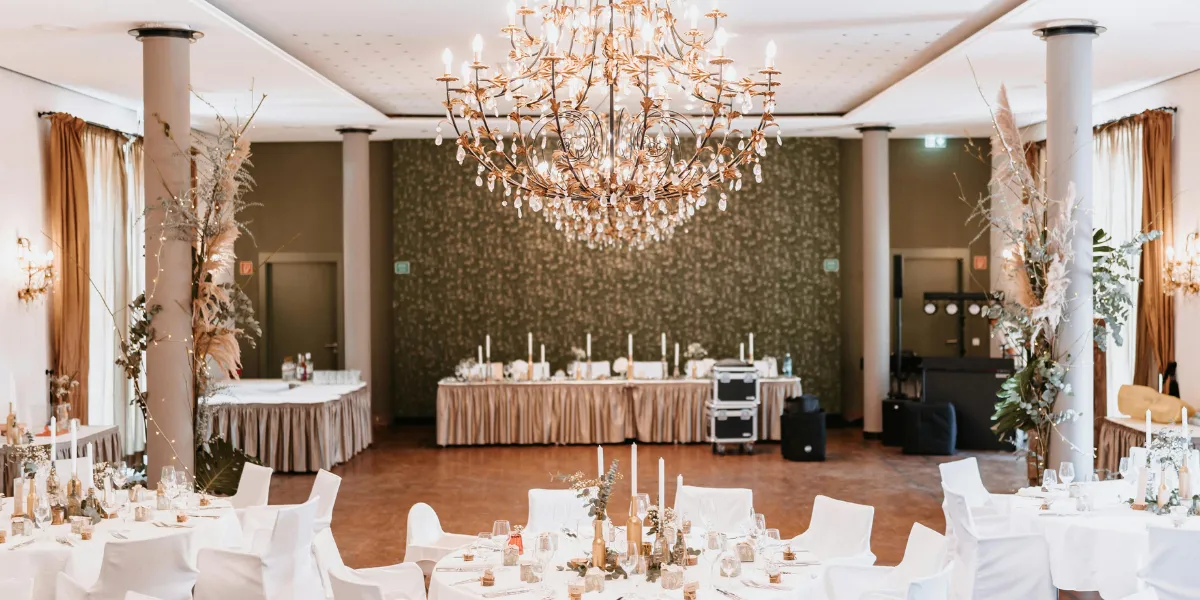
Understanding Wedding Venue Costs: Off-Peak vs. Peak Pricing
Essential Guide to Wedding Venue Prices: Peak vs. Off-Peak Season Differences
This comprehensive article explores the differences between peak and off-peak wedding venue pricing, offering insights into seasonal trends, cost benefits, and planning considerations for a memorable and cost-effective wedding. By understanding seasonal pricing nuances, couples and event organizers can make informed decisions to maximize their budgets while achieving their dream wedding.
Understanding Peak vs. Off-Peak Season Wedding Venue Pricing Differences
Understanding peak and off-peak wedding venue pricing begins with recognizing the seasonal factors that influence overall costs. Peak wedding season is marked by high demand, favorable weather, and holiday periods that drive up venue rental prices, vendor fees, and service costs. Wedding Wire
Defining Peak Wedding Season Timing and Characteristics
Peak wedding season generally spans late spring and summer, with additional spikes in early fall in many regions. During these times, optimal weather, long daylight hours, and high guest attendance increase the value of venues and services. Couples often book months in advance, leading to limited availability and competitive pricing. Venues tend to offer premium packages with added ambiance and service enhancements that further elevate costs during this period. wedding season
Defining Off-Peak Wedding Season Timing and Characteristics
Off-peak wedding season includes months outside the prime period—typically winter and early spring. With lower demand during these seasons, venues offer more competitive pricing, flexible booking terms, and occasional discounts or value-added packages. Although off-peak weddings may raise concerns about weather and limited daylight, they also provide couples with creative flexibility and customization opportunities not always available during peak times.
How Off-Peak Season Pricing Differs From Peak Season Costs for Wedding Venues
Off-peak pricing is guided by the law of supply and demand. With fewer couples booking, venues lower their rates to attract business. Vendors are generally more open to negotiating fees during off-peak periods compared to the busy peak season. This often means lower base rental rates, reduced service charges, and sometimes complimentary upgrades or bundled offers.
Average Cost Savings When Choosing an Off-Peak Date
Couples opting for off-peak dates can typically save 20% to 40% on overall wedding expenses compared to peak season bookings. These savings can be redirected toward other wedding priorities such as upgraded décor, enhanced catering, or additional photography services. In some high-demand regions, the cost differences are even more pronounced. wedding
Factors Driving Higher Prices During Peak Wedding Months
Several factors contribute to higher peak season prices. These include greater demand for venues, better weather conditions, and the need to cater to larger guest expectations. Venues often invest in seasonal enhancements like specialized lighting, elaborate floral arrangements, and luxury accommodations during this period. Additionally,
in a busy market tend to bundle services and impose premium fees due to heavy booking schedules.
Key Financial Benefits of Selecting an Off-Peak Wedding Date

Choosing an off-peak wedding date not only helps reduce expenses but can also enhance the overall wedding experience. Effective financial planning and cost management are vital in wedding planning, and off-peak periods present several advantages. wedding
Securing Venue Discounts and Lower Rental Fees
During off-peak seasons, many venues offer attractive discounts and lower rental fees to stimulate business. Special packages may include complimentary extras such as additional hours, event setup assistance, or décor enhancements. These incentives help couples book their desired venue without competing against high seasonal demand.
Finding More Affordable Vendor Packages
Vendors, including photographers, caterers, and florists, often lower their prices during slower off-peak months. With increased availability, couples can negotiate better rates and customized service agreements. Many vendors also provide exclusive discounts or additional services as booking incentives, which further reduce overall wedding costs.
Reduced Travel and Accommodation Expenses for Guests
Weddings held during off-peak periods can also ease travel burdens for guests. Hotels and resorts usually offer lower room rates outside peak seasons, making accommodations more affordable. This is particularly beneficial when coordinating transportation and lodging for guests coming from out of town.
Potential for Negotiating Better Rates With Suppliers
Off-peak times provide vendors with more open schedules and lower demand, creating opportunities for better negotiation. Couples may secure more personalized service packages and improved vendor attention. Such flexibility often leads to higher quality service at a more attractive overall price.
Stretching Your Overall Wedding Budget Further
Savings achieved on venue and vendor costs can be reallocated to other wedding aspects, such as premium entertainment, enhanced beauty services, or unique wedding favors. This increased financial flexibility allows couples to create a celebration that reflects their personal tastes without compromising on quality. wedding wire
How Venue Availability Changes Between Peak and Off-Peak Seasons
Venue availability differs significantly between peak and off-peak seasons, an important factor affecting the planning process and overall satisfaction.
Increased Competition for Venues During Peak Season
During peak months, venues are in high demand and are often booked well in advance. Couples may face stiff competition for preferred dates and styles, sometimes having to compromise on location or package details. The high demand reinforces higher pricing and limits available options.
Greater Choice of Venues and Dates in the Off-Season
Conversely, off-peak seasons provide a broader selection of venues and greater scheduling flexibility. With fewer couples booking, more dates become available, allowing couples to secure venues that match their aesthetic and logistical requirements. This flexibility can also open opportunities to book unique or previously unavailable locations.
Booking Your Dream Venue More Easily
Lower demand during off-peak times means couples can more easily secure their dream venue with less stress. Personalized interactions with venue managers and event coordinators are more likely, which can lead to a tailored and satisfying planning experience. The ease of booking can contribute significantly to a memorable wedding day.wedding day
Less Lead Time Needed for Off-Peak Bookings
Off-peak weddings usually require shorter lead times compared to peak sessions. This reduction in necessary advance planning can alleviate some of the stress and uncertainty in the planning process. Couples who have not had the luxury of extensive planning time may find off-peak options particularly beneficial.
Impact on Securing Preferred Photographers, Caterers, and Other Services
Vendor availability tends to be greater during off-peak seasons. Photographers, caterers, florists, and other service providers are more accessible, giving couples the freedom to choose the best professionals for their needs. This enhanced availability not only improves service quality but also creates room for more personalized attention. wedding wire
Non-Financial Advantages of an Off-Peak Season Wedding

Beyond cost savings, off-peak weddings offer several non-financial benefits that can elevate the overall experience. wedding wire
Enjoying a More Unique or Themed Wedding Experience
Off-peak weddings provide an opportunity to experiment with innovative and unconventional themes. With fewer traditional expectations to meet, couples can explore creative décor concepts, seasonal motifs, and artistic elements that personalize their celebration. This creative freedom often results in a unique wedding atmosphere that leaves a lasting impression. wedding
Potentially Higher Guest Attendance Due to Fewer Conflicts
Scheduling a wedding in the off-peak period can reduce conflicts with major holidays, vacations, or other events, potentially increasing guest attendance. A higher turnout can contribute to a warmer, more communal atmosphere where family and friends gather in greater numbers. wedding wire
A More Relaxed Planning Process With Less Stress
The less chaotic environment of off-peak seasons translates into a more relaxed planning experience. With more time available for negotiations, vendor bookings, and detail finalizations, couples can enjoy a stress-free process. This relaxed pace fosters better communication among wedding planners, vendors, and guests.
More Personalized Attention From Vendors
With fewer events competing for attention during off-peak times, vendors are often able to offer more dedicated service. This personalization can include tailored menus, unique floral arrangements, and custom timelines, all of which enhance the overall quality of the wedding celebration.
Creating a Distinctive Atmosphere for Your Celebration
An off-peak wedding naturally provides a quieter, more intimate environment. The less crowded venues and calm surroundings allow couples to create an event that focuses on their personal narrative, resulting in an ambiance that truly reflects their
.
Considerations and Potential Downsides of Off-Peak Weddings
While off-peak weddings offer many benefits, there are also considerations and potential downsides to keep in mind.
Weather Unpredictability and Its Impact on Your Day
Weddings during winter or early spring can face unpredictable weather conditions such as rain, snow, or cold temperatures. These factors can impact guest comfort and outdoor event execution, including photography. Couples should plan contingency measures, such as having an indoor venue backup and weather-appropriate décor options.
Limited Availability of Certain Flowers or Seasonal Decor
In off-peak seasons, the availability of popular seasonal flowers and décor may be limited. Couples might need to consider alternative arrangements or decorative themes. Working with experienced vendors can help mitigate these limitations by suggesting creative substitutions that still capture the desired aesthetic.
Potential for Fewer Daylight Hours for Photography
Off-peak seasons, particularly in winter, offer fewer daylight hours. Shorter days and lower sun angles can challenge photographers when capturing vibrant images. Careful planning and scheduling during the brightest moments of the day become essential to achieving excellent photography results.
Some Guests May Face Travel Difficulties in Certain Off-Peak Months
Regions prone to winter weather disruptions or reduced transportation services during off-peak seasons can pose travel challenges for guests. Providing clear travel guidance and early notifications can help ensure that guests arrive safely and on time.
Ensuring Vendor Suitability for Off-Season Conditions
Not every vendor may be equipped to handle the challenges of off-peak events. It is important for couples to verify that their selected vendors have experience managing weather contingencies, seasonal décor issues, and tighter scheduling. Doing so helps prevent unexpected issues on the wedding day.
Making an Informed Decision for Your Wedding Venue and Date

When planning a wedding, couples must carefully weigh the pros and cons to make an informed decision that aligns with their vision and budget.
Aligning Your Wedding Vision With Seasonal Realities
Couples should first clarify their wedding vision and determine which elements are indispensable versus those that can be flexible. Understanding seasonal trends assists in aligning the desired ambiance, décor, and vendor services with the chosen time of year. For example, a garden wedding may be best in spring or summer unless plans are adjusted for off-peak conditions.
Weighing Cost Savings Against Potential Compromises
A critical part of choosing an off-peak wedding date is balancing significant cost savings against potential compromises in weather, ambiance, or guest convenience. A detailed comparison of discounted venue fees and vendor costs versus possible weather challenges ensures that budget gains do not come at the expense of key elements of the wedding.
Researching Specific Seasonal Trends in Your Chosen Location
Since wedding pricing and venue availability can differ greatly by location, couples should research local seasonal trends. Regional weather patterns, tourism peaks, and cultural celebrations can all influence costs. Consulting local wedding planners and reviewing historical trends can provide invaluable insights into the best times for off-peak bookings.
Consulting With Wedding Planners for Expert Seasonal Advice
Expert wedding planners bring an understanding of seasonal variations and vendor negotiation strategies that can be critical during off-peak periods. Their practical experience helps couples develop flexible strategies to overcome potential challenges while preserving the desired wedding aesthetics and emotional impact.
Questions to Ask Venues About Peak vs. Off-Peak Differences
When evaluating venues, couples should ask: - What discounts or added benefits are offered for off-peak bookings? - Are there specific restrictions during off-peak periods? - How does seasonal décor availability affect the event package? - What contingency plans exist for adverse weather? - Can the venue recommend vendors experienced with?
These questions help clarify expectations and ensure a well-informed decision.
Table: Key Financial and Logistical Differences Between Peak and Off-Peak Weddings
Before concluding, the following table summarizes key differences:
This table highlights differences that can greatly influence both the budget and planning experience, helping couples optimize their wedding strategy during off-peak seasons.
Frequently Asked Questions
Q: What is the main financial benefit of choosing an off-peak wedding season? A: The primary benefit is the potential to save 20% to 40% on overall expenses, including lower venue fees, vendor pricing, and guest travel costs.
Q: How do weather concerns impact off-peak weddings? A: Off-peak weddings may face unpredictable weather, requiring robust backup plans such as indoor options and alternative lighting setups to ensure smooth event execution.
Q: Can I still have a unique wedding experience during off-peak seasons? A: Yes. Off-peak weddings often allow for creative themes and personalized touches due to relaxed vendor schedules and lower traditional expectations.
Q: Do venues offer additional perks during off-peak bookings? A: Many venues provide added incentives such as complimentary upgrades and reduced rental fees to encourage off-peak bookings.
Q: What steps can I take to ensure vendor reliability during off-peak periods? A: Consult with wedding planners experienced in off-peak events, request vendor references, and negotiate detailed contracts to secure high-quality service.
Q: How does choosing an off-peak wedding affect guest attendance? A: Off-peak weddings can improve guest attendance by avoiding conflicts with major holidays or events, leading to a higher likelihood of participation.
Q: What should couples ask venue managers regarding seasonal differences? A: Couples should inquire about pricing variations, available packages, vendor recommendations, and contingency plans for adverse weather conditions.
Final Thoughts
Off-peak weddings offer a compelling balance of cost savings and unique planning opportunities. By understanding both the financial benefits and logistical differences, couples can design a wedding that meets their budget and vision. Non-financial advantages—such as enhanced guest attendance, a relaxed planning process, and personalized vendor engagement—further enrich the celebration.
Choosing the right wedding date is about aligning personal needs with seasonal realities. Whether your goal is to reduce expenses or maximize a unique ambiance, the insights provided here equip couples for success. With thorough research, expert consultation, and a flexible approach, off-peak weddings can transform potential challenges into memorable opportunities.
By leveraging off-peak pricing, studying venue availability, and proactively addressing potential downsides, couples can create a balanced and rewarding wedding celebration. In an industry shaped by shifting trends and economic pressures, making informed seasonal choices is key to modern wedding planning. With the right strategy, every aspect—from vendor selection to décor—can harmonize to produce a spectacular and personalized celebration that stands the test of time.
Links
Home
Gallery







